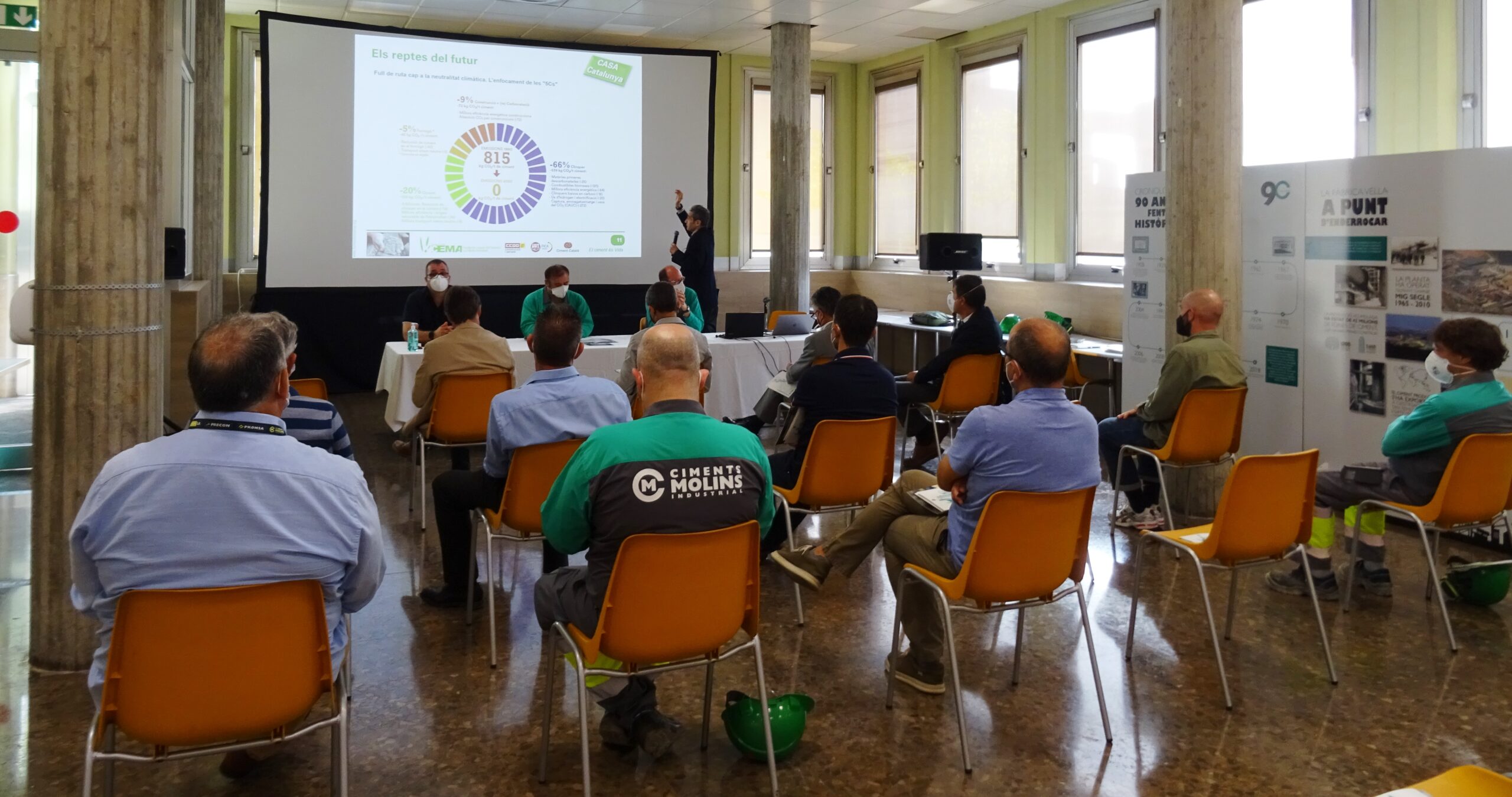A representation of the Parliamentary Group of Junts per Catalunya has made a guided visit to the cement factory of Sant Vicenç dels Horts (Barcelona) to learn directly about the production process, environmental preservation measures and contributions to the sustainability of Catalan plants in the different stages of cement manufacturing. The delegation, made up of Joan Canadell (deputy and former president of the Barcelona Chamber of Commerce), Ramon Tremosa (economist and former Minister of Business and Knowledge of the Generalitat, as well as prologue author of the Catalan cement industry roadmap to achieve climate neutrality 2050) and the civil engineer Salvador Vergés, visited the Cementos Molins facilities on September 14, accompanied by the president of Ciment Català, Salvador Fernández Capo, and a group of representatives of the CASA Catalonia of the CEMA Foundation (Autonomous Commission for the Monitoring of the Voluntary Agreement for the efficiency in the use of resources and the transition towards a Circular Economy of the Catalan cement industry), a joint tripartite entity pioneer in the European cement industry in which employers and unions (CCOO del Hábitat and UGT-FICA, Federation of Industry, Construction and Agro) work together for the sustainability of the sector.
The parliamentarians were informed in detail of the measures in favor of Sustainability and the Circular Economy that have been adopted in the factories. These include the use of alternative raw materials that reduce the consumption of natural resources, the energy use of waste to avoid the consumption of fossil fuels and reduce carbon dioxide emissions (the main agent of climate change), improvements in efficiency energy of the facilities, the technologies and infrastructures aimed at minimizing the emission of particles and making the most of the thermal energy generated in the kilns, the permanent control measures of environmental behavior and quality, and the quarry restoration plans to recover the natural spaces where the raw materials come from (mainly limestone). Technicians from the host company also showed the laboratory equipment (which allows ensuring the quality and performance of the manufactured product) and the control room, from where not only the manufacturing process is managed, but also compliance with the most rigorous environmental regulations.
The visit is part of the usual informational contacts that the members of the CASA (unions and businessmen) develop before the political and economic representatives of the country. Along with the tour of the factory, the parliamentarians received abundant information on the history and challenges of the Catalan cement industry, as well as on the properties and utilities of cement as a source of social progress and an inherent factor in modern welfare societies.

